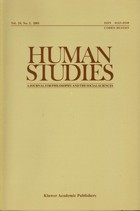
KONOPÁSEK, Z. / KUSÁ, Z. (2006): Political screenings as trials of strength: Making the communist power/lessness real. Human Studies, 29 (3): 341-362
::::In this paper we discuss the problem of communist power in so called totalitarian regimes. Inspired by strategies of explanation in contemporary science studies and by the ethnomethodological conception of social order, we suggest that the power of communists is not to be taken as an unproblematic source of explanation; rather, we take this power as something that is itself in need of being explained. We study personal narratives on political screenings that took place in Czechoslovakia in 1970 and analyze how the power of communists obtained its strength from ordinary and “unremarkable” interactions between participants. The screenings are interpreted, in the terms of Bruno Latour, as “trials of strength.” We show that it was crucial for all the participants that associations, translations or mobilizations involved in making the regime real, remained partial and multiple, and not exclusive and “total” as is often assumed within dominant discourses on totalitarianism.
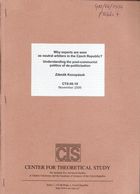
KONOPÁSEK, Z. (2006): Why experts are seen as neutral arbiters in the Czech Republic? Understanding the post-communist politics of de-politicization CTS Research Reports, CTS-06-06. Praha: CTS. Dostupné na adrese http://www.cts.cuni.cz
::::The situation in contemporary Czech Republic provides numerous examples showing that experts and scientists keep enjoying an unchallenged and privileged status of neutral arbiters, situated out of the political arena. Although comparisons between the post-communist East and (capitalist) West are always at risk of being schematic and inadequate, it seems that such de-politicized perception of science is much stronger in the Eastern Europe than in most Western European countries. Underdevelopment of STS (Science and technology studies) in the post-communist East is part of this diagnosis. Different political cultures of expertise in the “new” and “old” EU member states might even turn into sources of tension and misunderstanding on the level of particular problems and controversies. In my paper I would like to make the difference and its roots more understandable. I will discuss the political status of science under the communist regime and its implications for the development after 1989. That time, in the Czech Republic, science and expertise were to be “finally liberated” from the burden of the political, with the hope that this de-politicization would bring us closer to Western democracies. This was a huge misapprehension, however, since Western democracies were at the very same time shifting towards a kind of “re-politicization” of the realm of science and technology. Propensity toward de-politicization was further increased, again quite paradoxically, by the process of accession of the Czech Republic to the EU. This process, simply put, had the form of purely technical implementation of unquestionable measures and principles. Although my presentation will take empirical evidence and case examples mostly from the Czech Republic, it may open a more general discussion about science and expertise in other post-communist countries as well.
Paper prepared for the international workshop on Science and Democracy. A New Frontier between Eastern and Western Europe? The Nobel Museum and Södertörn University College, Stockholm, September 4-6 2006
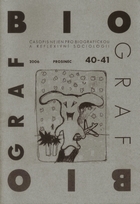
KONOPÁSEK, Z. / PALEčEK, J. (2006): V moci ďábla: Exorcismus věřícnýma očima. Biograf  (40-41): 138-171
(40-41): 138-171
::::Kritický rozbor filmu V moci ďábla (Scott Derrickson 2005). Ukazujeme, jak tvůrci rozehrávají nejednoznačnosti ohledně medicínského/náboženského vysvětlování tragického případu exorcismu. To nám umožňuje vysvětlit některé podstatné prvky našeho vlastního přístupu při výzkumu duchovních a religiozních zážitků v psychiatrii.
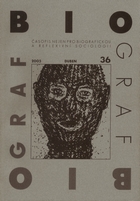
DAVID, G. (2005): Žertování o cenách v arabských koloniálech: Jak mohou citlivá témata proměňovat mezi-skupinové vztahy. Biograf , (36): 25-54 - přeložil Zdeněk Konopásek
, (36): 25-54 - přeložil Zdeněk Konopásek
::::Tensions between small immigrant-owned stores and their African-American customers are frequently cited as a major problem in large urban cities in the United States. Whereas most research has focused on the problematic nature of this relationship, the research reported in this paper attempts to focus on the positive. Rather than being plagued by tensions and problematic encounters, this paper asserts that interactions in small "convenience stores" are largely unproblematic. This paper examines the occurrence of unproblematic cross-cultural encounters as a collaborative effort between customer and worker. Specifically, this paper demonstrates how humor plays an important role in the formation of positive relationships through the analysis of "price humor". While high prices have been cited as a source of tension, this paper shows how sensitive topics, such as price, can be used by interactants to build rapport across the counter.
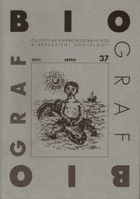
KONOPÁSEK, Z. (2005): Aby myšlení bylo dobře vidět: Nad novou verzí programu Atlas.ti. Biograf , (37): 89-109
, (37): 89-109
::::V návaznosti na recenzi z roku 1997 rozebírám novou verzi programu pro kvalitativní analýzu dat Atlas.ti (v. 5). Probírám postupně, pro koho je takový nástroj vhodný, jaké jsou základní principy analytické práce s programem a co je v této verzi programu nového. Zmiňuji také, co mi stále v programu Atlas.ti chybí a zda má smysl upgradovat z předchozí verze.
KONOPÁSEK, Z. (2005): Exploring ordinary resources of an extraordinary power: Toward ethnomethodological study of the communist regime CTS Research Reports, CTS-05-07. Praha: CTS. Dostupné na adrese http://www.cts.cuni.cz
::::Příspěvek připravený jako zvaná plenární přednáška na konferenci Mezinárodního institutu pro etnometodologii a konverzační analýzu (IIEMCA), Bentley College, Waltham, MA, USA, 6.-9. srpna 2005
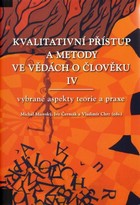
KONOPÁSEK, Z. (2005): Co znamená interpretovat text? In: M. Miovský, I. Čermák & V. Chrz, eds.: Kvalitativní přístup a metody ve vědách o člověku - IV: Vybrané aspekty teorie a praxe. Olomouc: FF UP. Str. 85-95
::::Jak analyticky vyložit text sebraných dat? Běžně se interpretace chápe jako myšlenkový postup. Snažíme se něco pojmově zpracovat; nově nahlédnout a uchopit. Takhle uvažují třeba filozofové a metodologové. Ve svém příspěvku půjdu jinudy. Ukážu interpretaci ne tolik jako mentální procesy (čtení), ale spíš jako pozorovatelné a vykazatelné materiální praktiky (psaní). Předvedu například, že co bereme jako „nové čtení textu“, se ve skutečnosti odehrává jako „čtení nových a nových textů“ – textů, které vytváříme analytickou prací s kvalitativními daty. Umění vyložit text vypadá z tohoto opomíjeného pohledu možná méně vznešeně než v metodologických pojednáních, ale o to přístupněji, použitelněji a obhajitelněji.
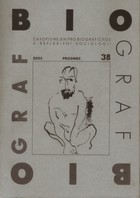
KONOPÁSEK, Z. (2005): Nesnáze s etnometodologií. Biograf , (38): 85-109
, (38): 85-109
::::
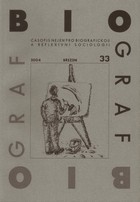
PREDA, A. (2004): Finanční vědění, dokumenty a struktury finančních činností. Biograf , (33): 3-29 - přeložili Zdeněk Konopásek a Jiřina Zachová
, (33): 3-29 - přeložili Zdeněk Konopásek a Jiřina Zachová
::::Starting from participant observation and interviews conducted in several European banks, the article examines how financial knowledge is constituted in the process of producing documents like research reports, analyses, and newsletters. The core argument is that documents act as organizational devices, with the help of which relationships are created, maintained, and managed across various contexts. In this perspective, the production of financial reports, analyses, and newsletters creates (1) knowledge-based networks of social relationships in which financial action is embedded and (2) stable temporal structures, thus ensuring the continuity of financial activities. On these grounds, the author argues here that knowledge-generating processes should be taken into account as an essential dimension of the structural embeddedness of financial action.
Přeloženo z originálu PREDA, A. (2002): Financial knowledge, documents, and the structures of financial activities. Journal of Contemporary Ethnography, 31 (4): 207-239
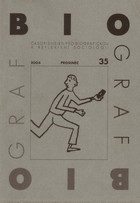
GUILLEMIN, M. / GILLAM, L. (2004): Etika, reflexivita a "eticky důležité okamžiky" ve výzkumu. Biograf , (35): 11-31 - přeložili Zdeněk Konopásek a Jiřina Zachová
, (35): 11-31 - přeložili Zdeněk Konopásek a Jiřina Zachová
::::Ethical tensions are part of the everyday practice of doing research—all kinds of research. How do researchers deal with ethical problems that arise in the practice of their research, and are there conceptual frameworks that they can draw on to assist them? This article examines the relationship between reflexivity and research ethics. It focuses on what constitutes ethical research practice in qualitative research and how researchers achieve ethical research practice. As a framework for thinking through these issues, the authors distinguish two different dimensions of ethics in research, which they term procedural ethics and "ethics in practice". The relationship between them and the impact that each has on the actual doing of research are examined. The article then draws on the notion of reflexivity as a helpful way of understanding both the nature of ethics in qualitative research and how ethical practice in research can be achieved.
Přeloženo z originálu GUILLEMIN, M. / GILLAM, L. (2004): Ethics, reflexivity, and "ethically important moments" in research. Qualitative Inquiry, 10 (2): 261-280
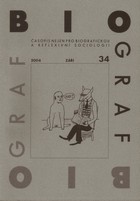
BERG, M. / BOWKER, G.C. (2004): Rozmanitá těla zdravotní dokumentace: K sociologii jednoho nástroje. Biograf , (34): 3-34 - přeložil Zdeněk Konopásek
, (34): 3-34 - přeložil Zdeněk Konopásek
::::This article argues that the medical record is an important focus for sociological research. In medical work, the modern patient´s body that Foucault has so aptly described is produced through embodied, materially heterogeneous work, and the medical record plays a crucial role in this production. It does not simply represent this body´s history and geography; it is a central element in the material rewriting of these. Simultaneously, the record fulfills a core role in the production of a body politic. As the record is involved in the performance of the patient´s body, it is also involved in the performance of the clinic in which that body comes to life. Finally, we argue that different records and different practices of reading and writing are intertwined with the production of different patient´s bodies, bodies politic, and bodies of knowledge. As organizational infrastructure, the medical record affords the interplay and coordination of divergent worlds. Seen as a site where multiple stories about patients and organizations are at stake, including the interoperability between these stories, the medical record becomes highly relevant both analytically and politically.
Přeloženo z originálu BERG, Marc / BOWKER, Geoffrey C. (1997): The multiple bodies of the medical record: Toward a sociology of an artifact. Sociological Quarterly, 38 (3): 513-537
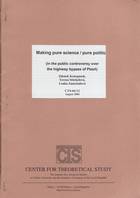
KONOPÁSEK, Z. / STÖCKELOVÁ, T. / ZAMYKALOVÁ, L. (2004): Making pure science / pure politics in the public controversy over the highway bypass of Plzeň CTS. Research Reports, CTS-04-12. Praha: CTS. Dostupné na adrese http://www.cts.cuni.cz/
::::Paper prepared for the Joint 4S & EASST Conference 2004 Public proofs – science, technology and democracy, Paris, Ecole des Mines, August 25-28 2004
This paper is based on a detailed empirical case study of a long-term public controversy over the construction of a highway bypass around the city of Plzen (in South-Western Bohemia, Czech Republic). The controversy involved a wide range of actors: local activists, an environmentalist NGO, politicians of all levels, experts, developers, state and regional administration, and media people. Two variants of the bypass were at stake: one of them gradually appearing better and better, attractive for experts, but existing as if only on paper, while the other was becoming more and more real, pushed through mainly by local politicians, and actually constructed. Although the story could be narrated in terms of an unequal struggle between environmentalists and small villages on one side and politicians, economic lobbies and municipality of a big city on the other, we will try to follow a more subtle and complex story-line, which focuses upon different strategic usages of science and politics. Besides explaining how it happened that one of the variants “attracted” the winning properties (and “won”), we will also describe a “vicious” circle of a double purification of science and politics and show how it contributes to the fragility of both democracy and expertise.
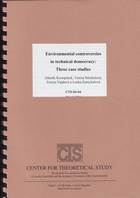
KONOPÁSEK, Z. / STÖCKELOVÁ, T. / VAJDOVÁ, T. / ZAMYKALOVÁ, L. (2004): Environmental controversies in technical democracy: Three case studies. CTS Research Reports, CTS-04-04. Praha: CTS. Dostupné na adrese http://www.cts.cuni.cz/
::::In this research report we present a collection of three case studies that have been undertaken within our work on the research project "Analysing public accountability procedures in contemporary European contexts". The overall aim of the project was to study opportunities and limits of democracy in societies in which expert knowledge becomes crucial for almost any decision-making and socio-technical networks that shape our daily lives are being openly and widely contested in the public arena. Especially in cases where science and technology are involved and where technicalities of different sorts and specialised knowledge penetrate political agenda, i.e., on the borderline of science and politics, the principles of open, friendly, inclusive and transparent politics (as well as the classical principles of disinterested and independent expertise) get into troubles. That is why we decided, in our research, to confront the principle of public accountability with the flesh-and-blood reality of the following socio-technical controversies, elaborated as in-depth case studies: (1) The controversy over the building and operation of the household waste incinerator in Praha-Malesice; (2) The public conflicts concerning the highway by-pass around the city of Plzeň; (3) Current policies and controversies related to the introduction of GMO into the Czech legal, social, economic and political environment.
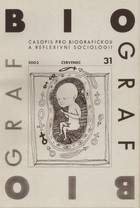
MOL, A. / LAW, J. (2003): Vtělené jednání, zjednávaná těla: příklad hypoglykémie. Biograf , (31): 5-25
, (31): 5-25
::::We all know that we have and are our bodies. But might it be possible to leave this common place? In the present article we try to do this by attending to the way we do our bodies. The site where we look for such action is that of handling the hypoglycaemias that sometimes happen to people with diabetes. In this site it appears that the body, active in measuring, feeling and countering hypoglycaemias is not a bounded whole: its boundaries leak. Bits and pieces of the outside get incorporated within the active body; while the centre of some bodily activities is beyond the skin. The body thus enacted is not self-evidently coherent either. There are tensions between the body's organs; between the control under which we put our bodies and the erratic character of their behaviour; and between the various needs and desires single bodies somehow try to combine. Thus to say that a body is a whole, or so we conclude, skips over a lot of work. One does not hang together as a matter of course: keeping oneself together is something the embodied person needs to do. The person who fails to do so dies.
MOL, A. / LAW, J. (2004): Embodied action, enacted bodies: The example of hypoglycaemia. Body & Society, 10 (2-3): 43-62
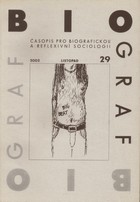
LATOUR, B. (2002): Když věci vracejí úder: Co mohou sociálním vědám přinést "vědní studia". Biograf , (29): 3-20 - přeložil Zdeněk Konopásek
, (29): 3-20 - přeložil Zdeněk Konopásek
::::The contribution of the field of science and technology studies (STS) to mainstream sociology has so far been slim because of a misunderstanding about what it means to provide a social explanation of a piece of science or of an artefact. The type of explanation possible for religion, art or popular culture no longer works in the case of hard science or technology. This does not mean, it is argued, that science and technology escapes sociological explanation, but that a deep redescription of what is a social explanation is in order. Once this misunderstanding has been clarified, it becomes interesting to measure up the challenge raised by STS to the usual epistemologies social sciences believed necessary for their undertakings. The social sciences imitate the natural sciences in a way that render them unable to profit from the type of objectivity found in the natural sciences. It is argued that by following the STS lead, social sciences may start to imitate the natural sciences in a very different fashion. Once the meanings of "social" and of "science" are reconfigured, the definition of what a "social science" is and what it can do in the political arena is considered. Again it is not by imitating the philosophers of science's ideas of what is a natural science that sociology can be made politically relevant.
LATOUR, B. (2000): When things strike back: A possible contribution of "science studies" to the social sciences. The British Journal of Sociology, 51 (1): 107-123
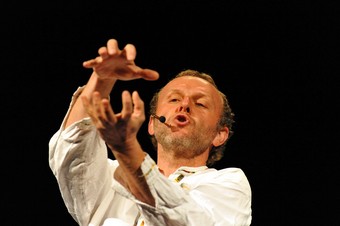
 ? - recenze vyjde v časopise Biograf
? - recenze vyjde v časopise Biograf
 se objevily informace o tom, co lze snad prý během března čekat v nové, sedmé verzi mého oblíbeného analytického programu
se objevily informace o tom, co lze snad prý během března čekat v nové, sedmé verzi mého oblíbeného analytického programu













